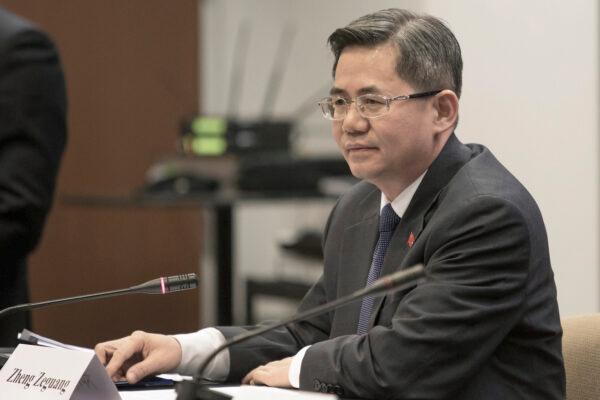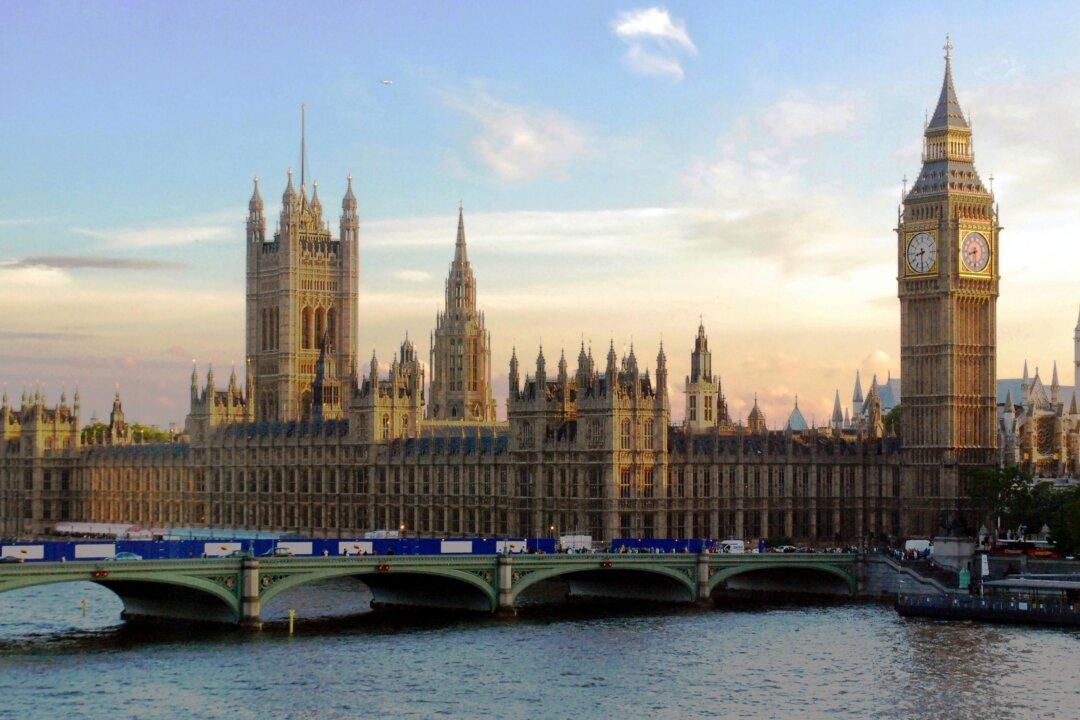China’s ambassador to the UK has been barred from Parliament after British lawmakers sanctioned by the regime expressed outrage over his scheduled visit.
But he has now been banned from setting foot in Parliament after the Speakers of both Houses of Parliament intervened.
Among the sanctioned were five Conservative MPs—Tom Tugendhat, Iain Duncan Smith, Neil O’Brien, Tim Loughton, and Nusrat Ghani—and two members of the House of Lords—Lord David Alton, a cross-bencher, and Labour peer Baroness Helena Kennedy.
But the APPG on China still extended an invitation to Zheng, who became Beijing’s ambassador in London in June, to its summer party on the Commons terrace pavilion overlooking the Thames.

They said it would be “unthinkable” that “the prime representative of the Chinese government in the UK is still apparently free to come to Westminster and to use facilities here as a mouthpiece for his regime” even after Parliament itself has been directly targeted by the regime.
In response to the protest, Sir Lindsay Hoyle, Speaker of the House of Commons, said: “I regularly hold meetings with ambassadors from across the world to establish enduring ties between countries and parliamentarians. But I do not feel it’s appropriate for the ambassador for China to meet on the Commons estate and in our place of work when his country has imposed sanctions against some of our members.”
“If those sanctions were lifted, then of course this would not be an issue,” he said. “I am not saying the meeting cannot go ahead—I am just saying it cannot take place here while those sanctions remain in place.”
A spokeswoman for Lord McFall, Speaker of the House of Lords, confirmed that the Speakers of both houses “are in agreement that this particular APPG China meeting should take place elsewhere considering the current sanctions against members.”
Sir Iain Duncan Smith, a former leader of the ruling Conservative Party, and a group of his sanctioned colleagues thanked the Speakers for their “strong principled stand,” and said allowing the diplomat onto the estate would have been “an insult to Parliament.”
“We the Sanctioned welcome the strong principled stand made by the Speaker and Lord Speaker in standing up for freedom of speech in the mother of Parliaments by supporting those Parliamentarians who have been sanctioned by China,” they said in a joint statement.
But Richard Graham, the Conservative MP who chairs the APPG on China, expressed his “regret” that he would have to postpone the talk.
Graham argued “the best way to discuss issues is to engage” and it was “very important” for the group to hear from the new ambassador.





